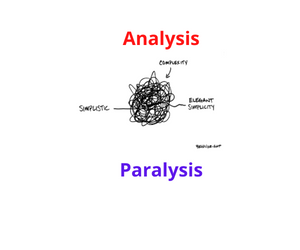The financial services business is one with many complexities; from product mix to its geographical spread and very importantly the daily interaction that the many players in the market have. It is though, a business like any other and one that requires its operations to function properly every day.
This Blog has reported on a where and why those failures can occur and where Ops professionals need to look to prevent those failures. The cost of those failures is growing ever larger. In March 2013, the Bank of England warned the UK banks that they needed to raise a further £25 billion ($38 billion) to cover expected losses from write-offs and fines. Business strategy is something well beyond the scope of this Blog, business process however is very much related to some of the write-offs and most, if not all of the fines.
The process under Basel II that requires the banks to set aside capital for Operational Risk, is very well defined. The banks are required to track their losses under seven formal categories.
- Internal Fraud – misappropriation of assets, tax evasion, intentional mismarking of positions, bribery
- External Fraud- theft of information, hacking damage, third-party theft and forgery
- Employment Practices and Workplace Safety – discrimination, workers compensation, employee health and safety
- Clients, Products, & Business Practice- market manipulation, antitrust, improper trade, product defects, fiduciary breaches, account churning
- Damage to Physical Assets – natural disasters, terrorism, vandalism
- Business Disruption & Systems Failures – utility disruptions, software failures, hardware failures
- Execution, Delivery, & Process Management – data entry errors, accounting errors, failed mandatory reporting, negligent loss of client assets
Some 65 of the world’s largest banks share their data via the ORX Association. That aggregated data shows that in 2011, the average loss per reported incident was some USD 900’000. Now they only collect data on incidents above $25’000. The majority of those losses are in categories 4 and 7.
The layman’s version of these two would be: Category 4 is doing things you should not do and Category 5 is what can be referred to as “shit happens”. This is either where is an adequate procedure and it was not followed or where there is an inadequate procedure. The ORX report very neatly puts those losses in terms of revenue, for 2011 the reported losses represented just under 3% of revenue. Now these numbers do not include fines, which are clearly increasing in amount. That is 3% of revenue not profit.
Fat margins have been a feature of banking. “Have been”being the operative term. For the fourth quarter of 2012, Amazon reported it had managed to increase its operating margin by a substantial amount, from 1.5% to 1.9%. That increase was good enough to cause the stock price to jump by nearly 10%. That is dwarfed by the reported operational losses in banks, even without thinking about all the other smaller losses-
Lessons Learned: There is no magic formula to make all of these issues go away; if people and machines are working, mistakes will be made and there is no one recipe to follow to avoid every possible error. There is though, every reason to have faith that the costs can be reduced. Two disciplines introduced in this book will, I hope, make a contribution to that effort: “normal” and “process management”.
“Normal” is the most imprecise of words, however it is all about context. As an Ops professional you need to have a feeling for what is going on in your business: is this the normal level of activity, the normal level of breaks, the normal size of trade? There is no singular definition of normal that fits every business, every location and every product, but in what you do as an Ops professional, you need to have a view on hwo this applies to your business.
“Process management” is about policies, procedures and checklists. For the Ops professional it is really the latter two that matter. Policy should shape procedure and procedure should shape the checklist. On a day-to-day basis the Ops professional should not need to worry about the policy; the requirements from that should be embedded in the procedure and the checklist.
To the two disciplines I would add a third ingredient to the mix. Spend money on the infrastructure and give that budget to the Ops team to direct the spending. That 3% figure from ORX on the losses down to operational errors ought to be a wake-up call. There is a lot of upside in better processes.
Hope dies last.
A personal request: The book of the Blog is in the works. Your support would be appreciated on two fronts:
- Please subscribe, if you don’t already.
- Please share this with a friend or two and ask them to subscribe too.
If the comments are wide of the mark and not offering anything of use, please comment or make contact directly via E-Mail.
Share on:



